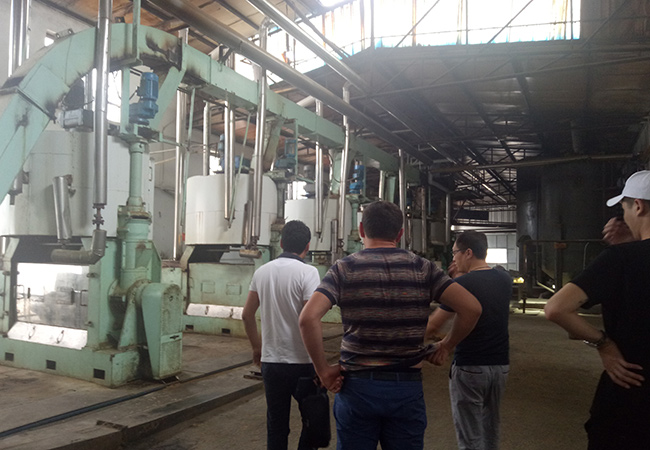Окт . 10, 2024 09:01 Back to list
Refined Peanut Oil Extraction Equipment for Efficient Production
The Importance of Peanut Oil Refined Machines in Modern Food Processing
In the realm of edible oils, peanut oil stands out for its distinctive flavor, high smoke point, and nutritional benefits. As consumer demand for high-quality peanut oil continues to rise, the role of peanut oil refined machines in food processing has become increasingly vital. These machines optimize extraction and refining processes, ensuring that the final product retains its desirable qualities while meeting safety and quality standards.
Understanding Peanut Oil
Peanut oil, extracted from the seeds of the peanut plant (Arachis hypogaea), is widely used in cooking, frying, and salad dressings. Its composition, which includes a high percentage of monounsaturated fats and essential fatty acids, makes it a healthy choice for various culinary applications. However, to maximize its potential, peanuts must be processed correctly, which is where refined machines come into play.
The Role of Refining Machines
Refining machines are essential in transforming crude peanut oil into a product that is safe and suitable for consumption. The refining process involves several stages, including degumming, neutralization, bleaching, and deodorization. Each of these stages serves to remove impurities, such as free fatty acids, phospholipids, pigments, and odorous compounds, ensuring that the oil has a clear appearance and a neutral flavor.
1. Degumming This initial step involves the separation of gums and phospholipids from crude oil. These substances can lead to off-flavors and affect the oil's stability over time.
2. Neutralization Here, the oil is treated with caustic soda to neutralize free fatty acids. This is a critical step since the presence of high free fatty acid levels can lower the oil's quality and shelf life.
peanut oil refined machine product

3. Bleaching During this stage, the oil is treated with bleaching clay or activated carbon to remove colored substances. This enhances the oil's visual appeal, making it more marketable.
4. Deodorization This final step involves using steam distillation under vacuum conditions to eliminate any remaining odors and volatile compounds. The result is a refined oil that is neutral in flavor and suitable for various culinary uses.
Advanced Technologies in Refining Machines
Recent advancements in technology have significantly improved the efficiency of peanut oil refined machines. Modern machines incorporate automation and control systems, allowing for precise monitoring of temperatures, pressures, and flow rates during the refining process. These innovations help maximize yield, reduce energy consumption, and minimize waste.
Moreover, the use of environmentally friendly methods, such as enzymatic degumming and supercritical CO2 extraction, is gaining popularity. These methods not only produce high-quality oil but also reduce the environmental impact associated with traditional refining techniques.
Conclusion
The production of high-quality peanut oil is pivotal in meeting consumer demands for healthy and flavorful cooking oils. Peanut oil refined machines play an indispensable role in this process, ensuring that the oil is safe, pure, and versatile. As technology continues to evolve, the future of peanut oil refinement looks promising, with innovations that could enhance efficiency and sustainability. In a world increasingly focused on health and wellness, investing in advanced peanut oil refined machines will undoubtedly benefit both producers and consumers alike.
-
HP290 First Press Oil Expeller Machinery: Efficient Oil Extraction
NewsAug.02,2025
-
Top Food Oil Refined Unit Companies w/ GPT-4 Turbo Tech
NewsAug.01,2025
-
Premium Black Seed Oil Expeller - High Efficiency Cold Press Oil Machine
NewsJul.31,2025
-
Oil Processing Equipment - High-Efficiency Flaking Machine
NewsJul.25,2025
-
High-Efficiency Peanut Oil Refined Machine for Quality Oil Production Leading Exporters & Companies
NewsJul.08,2025
-
High Efficiency Sunflower Seed Oil Press – Leading Cooking Oil Press Machine Factories & Suppliers
NewsJul.08,2025
